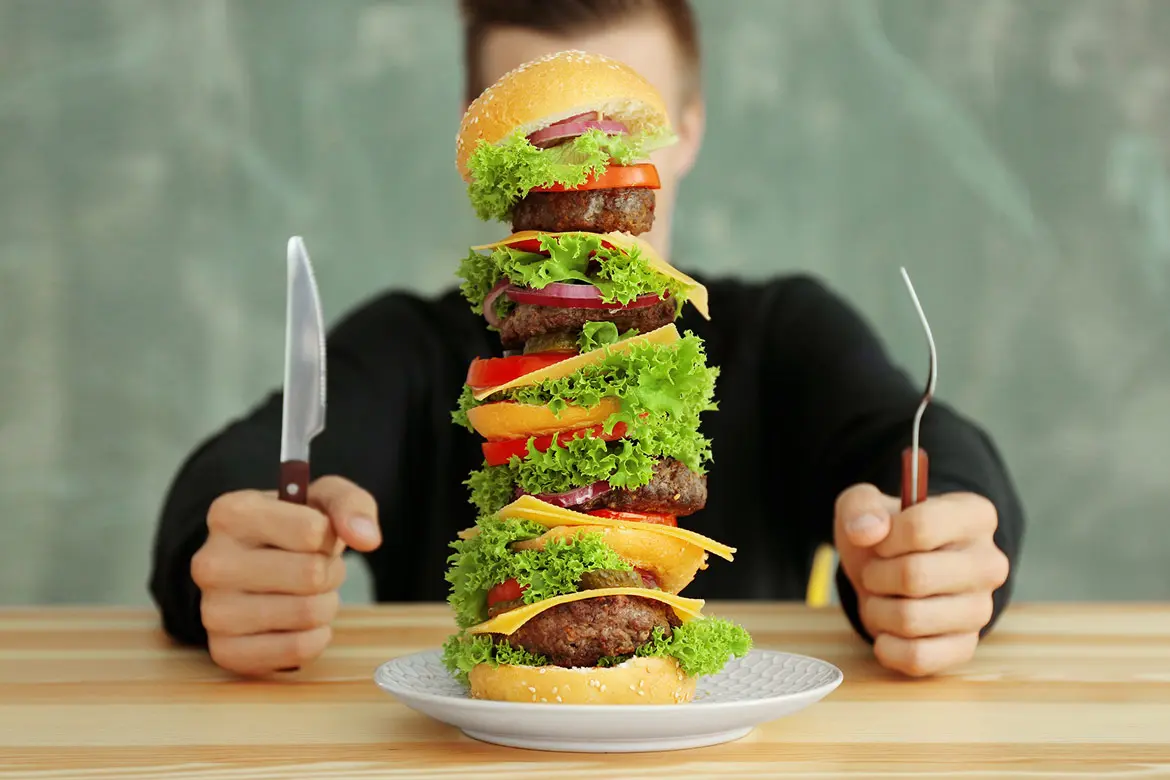We’ve all been there—pushing back from the table while feeling like we’ve just eaten enough to hibernate through the winter. Maybe it was a holiday feast, a buffet, or just an irresistible potluck. Overeating happens. But what you do next can really affect how you feel for the rest of the day (or even the next).
Here’s a quick guide on what to do right after you’ve gone a bit overboard with the food.
1. Take a Gentle Walk
Resist the urge to crash on the couch. Walking is a light physical activity that doesn’t strain your already overloaded digestive system. A 10 to 15-minute walk can help stimulate digestion and even speed up the time it takes for food to move through the stomach. This simple activity also helps in stabilizing blood sugar levels which can spike after a large meal.
Additionally, the fresh air and light exercise can improve your mood and clear your mind from any eating guilt.
“You don’t have to exhaust yourself with some crazy workout that will leave you feeling drained and craving simple carbs to stabilize your blood sugar!” explains Victoria Seaver, M.S., RD, a registered dietitian.
2. Sip Some Water
Drinking water after overeating can help ease digestion and aid in flushing out excess salt, which often accompanies heavy meals. However, be careful not to drink too much at once as excessive water can further distend the stomach. Small sips during and after your meal can facilitate digestion and help dissolve nutrients and waste more effectively.
Water also helps in managing body temperature and keeping the digestion enzymes active.
“Sipping on water may help flush out some of the sodium you’ve consumed,” says Kristen Smith, R.D., a registered dietitian and spokesperson for the Academy of Nutrition and Dietetics.
3. Try Some Herbal Tea
@wearegirlswhoeat HERBAL TEAS TO TRY! #tea #herbaltea #cleaneating #decaffeinated #cleandrink #ingredients #anxietyrelief #digestivesystem #digestivehealth
Herbal teas like peppermint, ginger, and chamomile can soothe stomach aches and aid digestion. Peppermint relaxes the digestive tract, ginger reduces nausea, and chamomile can lessen stomach discomfort and help you relax.
These teas provide antioxidants which can reduce inflammation caused by overeating. Not only do they help in digestion, but they also offer a moment of tranquility and a break from the hustle and bustle of everyday life.
4. Avoid Lying Down Immediately
Lying down right after eating can lead to discomfort and indigestion. Gravity plays a key role in digestion, and staying upright will help your body process your meal more effectively. If you lie down, you might experience acid reflux or heartburn, as it’s easier for the stomach acid to travel back up the esophagus when you are horizontal.
Sitting or standing helps keep the digestive juices in the stomach where they belong.
5. Don’t Overcompensate by Skipping Meals
It might be tempting to skip your next meal if you’ve overeaten, but this can lead to a cycle of overeating and restriction. Instead, focus on returning to your normal eating schedule and opt for light, nutritious meals. Your body relies on a regular intake of nutrients to maintain energy levels and metabolism.
6. Focus on Fiber the Next Day
After overeating, particularly if your meal was rich in fats and low in fiber, plan your next day’s meals around fiber-rich foods. Fruits, vegetables, legumes, and whole grains can help keep your digestive system moving and prevent constipation.
Fiber absorbs water and expands in your stomach, which can help you feel fuller and more satisfied. This can assist in normalizing your eating patterns and stabilizing your appetite.
7. Use Gentle Stomach Exercises
Engaging in gentle core exercises, like yoga or stretching, can help reduce bloating and discomfort. Avoid intense exercises, as they might make you feel worse when your stomach is full.
These light movements can stimulate the stomach and help speed the passage of food through your digestive system. They also can increase blood flow to the digestive organs, enhancing the digestive process and helping you feel better faster.
8. Practice Mindful Eating Going Forward
Take this experience as a learning opportunity. Practice mindful eating to enjoy your food, recognize your body’s hunger and fullness signals, and avoid overeating in the future.
Mindful eating involves being present while you eat, savoring each bite, and acknowledging your body’s satiety cues. It helps in building a healthier relationship with food and can be a fundamental tool in managing eating habits.
“And if you do end up craving chocolate at the end of the night, allow yourself to enjoy a piece! To help make it a more satisfying snack, try pairing it with healthy fat, like nuts, some extra protein, such as a glass of milk or piece of cheese or fiber, like fruit,” Seaver says.
How to Prevent Overeating
Learn to distinguish between true hunger and eating out of boredom, stress, or habit. Try to eat only when you’re actually hungry and stop when you’re comfortably full, not stuffed.
Stay Hydrated
Sometimes, thirst can be mistaken for hunger. Drinking plenty of water throughout the day can help you stay hydrated and reduce the likelihood of overeating. Aim to drink a glass of water before meals, which can help you feel more full.
Plan Your Meals and Snacks
Planning helps you avoid making impulsive food choices that can lead to overeating. Prepare balanced meals and healthy snacks ahead of time to keep your hunger at bay and your nutrition on track.
Eat Regular Meals
Skipping meals can lead to excessive hunger, increasing the risk of overeating later. Eating at regular intervals helps maintain blood sugar levels and reduces cravings.
Incorporate Protein and Fiber in Your Meals
@foodbabeabby High protein and high fiber dinner! 💪 #healthyfoodie #foodieph #highproteinmeal #mealprepideas #mealpreppingideas #mealprepp #fatlossfood #fatlossfoodplan
Protein and fiber help you feel full and satisfied, which can prevent overeating. Include a source of protein and fiber in every meal to help prolong satiety.
Control Portion Sizes
Use smaller plates, bowls, and utensils to help control portion sizes. It’s easy to overeat if you’re serving yourself larger portions than you need.
Final Thoughts
Follow these steps, and you can ease that discomfort and turn overeating into a chance to build healthier habits. Take these moments as lessons, and soon, you’ll be enjoying your meals just the right amount.

